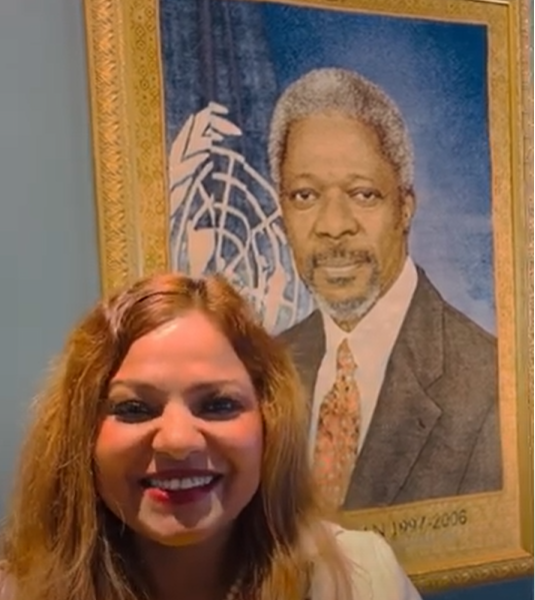The World Health Organisation on Monday proposed an official name for the illness caused by the new coronavirus: COVID-19. The acronym stands for coronavirus disease 2019, as the illness was first detected toward the end of last year.
The director general of the WHO, Tedros Adhanom Ghebreyesus, noted that the new name makes no reference to any of the people, places or animals associated with the coronavirus. The goal was to avoid stigma.
Under international guidelines, the WHO “had to find a name that did not refer to a geographical location, an animal, an individual or group of people, and which is also pronounceable and related to the disease,” he said on Twitter.
The death toll from the coronavirus epidemic is continuing to climb, Chinese officials said Tuesday. Tedros said that 1,017 people had died from the coronavirus. Most of the deaths occurred in Hubei province.
The number of confirmed infections in China also grew, to at least 42,700 from about 40,000 a day earlier. Most of the infections are in Hubei, though the daily tally of new cases there fell compared with previous days.
Hubei recorded 2,097 new infections Monday, compared with 2,618 a day earlier.
There are 393 COVID-19 cases abroad, in a total of 24 countries.
“With 99% of cases in China, this remains very much an emergency for that country, but one that holds a very grave threat for the rest of the world,” Tedros said.
Thousands were ordered into quarantine after cluster of cases linked to department store.
Nearly a third of the confirmed coronavirus cases in Tianjin, a city of more than 15 million about 70 miles southeast of Beijing, have been linked to one department store, adding to fears about rapid transmission in tightly clustered communities.
Of 102 confirmed cases in the city, at least 33 patients worked or shopped at a department store in the Baodi district, or had close contact with employees or customers, according to Tianjin health authorities. Many of them had no history of travel to Wuhan, the city where the outbreak emerged. Officials estimated that 11,700 customers had visited the shopping complex during a period in late January. Authorities said that those customers would be quarantined and that the store itself, which they did not identify, had been sealed and disinfected.
It was not immediately clear how authorities had tracked the shoppers, but health officials in the city have put out alerts on social media and on state news outlets urging residents to contact the government if they visited the store recently. News reports also said residents had been asked at various checkpoints in the city if they had been there.
In addition, emergency measures were imposed over sections of Baodi — home to nearly 1 million people — with all but two entrances and exits for certain residential areas sealed off and security personnel on round-the-clock patrols. Some residents were allowed to leave their homes only once every two days.
Back to work: That’s the message Beijing is sending companies and farms.
Even as China struggles to contain the outbreak, the government is urging factories and farmers to get up and running again.
Local governments should help businesses reopen, Cong Liang, secretary-general of the National Development and Reform Commission, the country’s top economic planning body, said at a news conference Tuesday.
He said that local officials should establish ways for factories to restart and that they should also eliminate bureaucratic hurdles like “filling out forms to fight the epidemic,” according to a transcript provided by the agency.
A day earlier, the Ministry of Agriculture issued a notice urging that farms begin spring planting. Addressed to its “numerous farmer friends,” the notice said they should buy seed and seedlings, and apply fertiliser and pesticides as needed.
The government statements reflect the problems that China’s containment efforts have caused the world’s No 2 economy. Many businesses remain closed, well after the end of the Lunar New Year holiday, in large part because workers are unwilling or unable to leave their hometowns and villages to go back to their jobs.
Chinese officials must walk a fine line, however. Getting China to work again means more human-to-human contact at a time when more cases and deaths are still being reported every day.
Infections in a Hong Kong building are raising fears about how the virus spreads.
Hong Kong officials have put into quarantine dozens of residents of one apartment building after two people who live on different floors of the building were found to be infected with the coronavirus, authorities said Tuesday.
The two cases appeared to suggest that the virus had spread through the building, perhaps through a pipe, raising new fears about how the virus spreads. In all, quarantines were ordered for residents of more than 30 units of the Hong Mei House, which is part of the Cheung Hong Estate, a public housing block in the New Territories area of the city.
Officials from the city’s Centre for Health Protection said the quarantine decision was made after an unsealed pipe was found in the apartment of a newly confirmed patient, a 62-year-old woman. She lives 10 floors below a resident who was earlier found to be infected.
Five more people living in different units displayed symptoms of the coronavirus, but all tested negative, officials said.
At a government-organized news briefing Tuesday, Yuen Kwok-yung, a microbiologist at the University of Hong Kong, said that the exact route of transmission had not been confirmed but that a pipe in one infected household appeared not to be sealed.
There are now 49 confirmed cases of the coronavirus in Hong Kong, health officials said, including three extended family members of the 62-year-old woman living in the building.
Virus could spread as migrant workers return to their jobs, official warns.
A senior Chinese official warned Tuesday that three populous provinces could be vulnerable to the spread of the coronavirus as migrant workers return to their jobs after the Lunar New Year break.
The official, He Qinghua, said that the provinces of Zhejiang, Guangdong and Henan could see a rise in new cases, even as the rate of new infections declined outside Hubei province, the heart of the outbreak.
The remarks highlight the looming possibility that more people could become infected as they resume their normal routines. Government officials extended China’s official Lunar New Year holiday by three days to keep people home. Major business hubs, like the cities of Beijing and Shanghai and the provinces of Guangdong and Shandong, then further extended holidays until Monday.
On Monday the China representative for WHO said that his agency had found the numbers of cases slowly rising in 10 provinces. The representative, Guaden Galea, said that it was too soon to say the epidemic had peaked.
Man suspected of coronavirus prank in Moscow is arrested.
A man accused of imitating a coronavirus victim by collapsing on a subway train in central Moscow this month was arrested and will face up to five years in prison if found guilty, law enforcement officials have said.
In a video of the prank, a man is seen collapsing in the middle of a subway car. After other passengers try to assist him, he begins convulsing.
Others, believed to be accomplices, shout, “Coronavirus here, move out quickly!” The yelling prompts a panic in the car, with passengers scrambling for the exits.
The suspect was identified as Karomatullo Dzhabarov, a Moscow district court said Monday. Two people suspected of being accomplices in the Feb 2 prank were also held and their homes searched, police said.
An Instagram account apparently belonging to Dzhabarov said, “Friends, we have not touched anybody, we have filmed this video for people to get serious about coronavirus.”
At least two coronavirus cases have been confirmed in Russia.
Cruise ship denied entry to at least five countries, despite no signs of illness.
A Holland America cruise ship with more than 2,200 people aboard was denied entry to Thailand on Tuesday over fears that passengers may be carrying the new coronavirus, bringing the total number of ports from which it has been turned away to at least five.
The ship, the Westerdam, which left Hong Kong on Feb 1, had already been turned away in at least five places, including the US territory of Guam, the Philippines and Japan.
Thailand, which has reported more than 30 cases of the virus, had agreed to let the ship dock in Bangkok but then reversed course.
The country’s prime minister, Prayuth Chan-ocha, defended the decision to deny the ship entry Tuesday and said the government would provide the vessel with humanitarian aid.
Holland America has said that no one onboard has come down with the virus.
“The ship is not in quarantine, and we have no reason to believe there are any cases of coronavirus on board despite media reports,” Holland America said in a statement.
The ship, said to have 1,445 passengers and 802 crew on board, was originally bound for Yokohama, Japan.
It was unclear where the ship would head next. A country may be more willing to accept the ship once it has been afloat for the standard 14-day quarantine period and has no reported cases of the virus.
A different ship, the Diamond Princess, has been docked for more than a week in Yokohama, Japan, where it was put under quarantine after cases of infection were confirmed. The total number of cases on board is about 135, including at least 10 crew members. More than 1,000 crew members will receive two months of paid leave after the end of the ship’s isolation period, Princess Cruises said Tuesday.
China said to target scholar who criticized government’s response to the crisis.
A Chinese law professor who blamed China’s top leader, Xi Jinping, for failing to contain the coronavirus outbreak has been confined to his home, according to one of his friends.
The professor, Xu Zhangrun, had published an essay in Chinese, “When Fury Overcomes Fear,” which circulated widely on overseas Chinese-language websites last week. The essay was translated into English and published on ChinaFile, a website that covers China, on Monday. It argues that Xi and his government have banned the free flow of information and that officials neglected their responsibilities as the outbreak worsened.
Xu, a law professor at Tsinghua University in Beijing, wrote that the coronavirus epidemic “has revealed the rotten core of Chinese governance.”
“It is true: the level of popular fury is volcanic and a people thus enraged may, in the end, also cast aside their fear,” he added.
After publishing the essay, Xu was ordered by Chinese authorities not to leave his home, according to the friend, Rong Jian.
First officials ousted for mishandling outbreak.
The Chinese Communist Party has dismissed two health officials in Hubei, the province at the centre of the epidemic, state-run news outlets reported Tuesday. They were the first senior officials to be punished for the government’s handling of the outbreak.
The officials were replaced by a deputy head of the National Health Commission, Wang Hesheng, whom Beijing dispatched to the region three days ago to take over the provincial government’s response to the crisis, according to state media.
Wang will take over the duties of both officials: Zhang Jin, the Communist Party secretary for Hubei’s health commission, and Liu Yingzi, the health commission’s director. Wang previously held a variety of positions overseeing public health and family planning in the city of Tianjin, and on the national level beginning in 2016.
It was not immediately clear whether the dismissals were the beginning of a broader political shake-up in the provincial government, whose response to the outbreak has been widely criticised. The party secretary and the mayor of Wuhan both offered to resign but have so far remained in their posts.
Until now, only two others have been dismissed in connection with the outbreak: Two officials from Huajiahe were ousted after a disabled teenager died when his father, his sole caregiver, was put into quarantine.






















